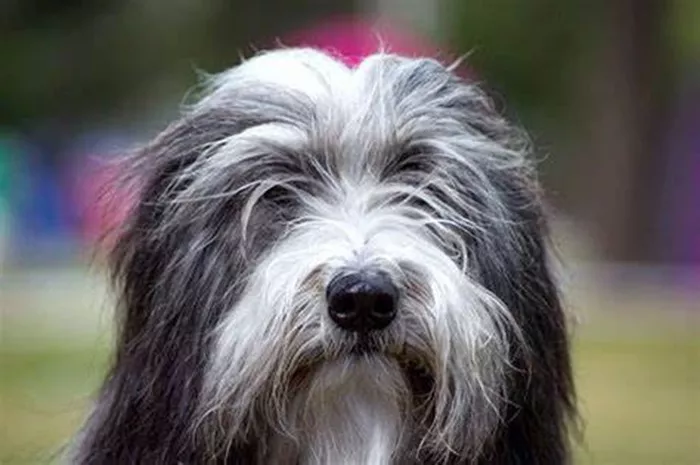Bearded Collies are lively, intelligent dogs with shaggy coats and friendly personalities. They make great pets for active families. However, like all breeds, they come with challenges. Potential owners should be aware of these issues before bringing one home.
This article explores the common problems with Bearded Collies. We will discuss health concerns, grooming needs, behavioral traits, and other challenges. By understanding these issues, you can decide if this breed is right for you.
Health Problems in Bearded Collies
Bearded Collies are generally healthy but can suffer from certain genetic and age-related conditions. Responsible breeders screen for these issues, but they can still occur.
Hip Dysplasia
Hip dysplasia is a common problem in medium to large breeds, including Bearded Collies. It occurs when the hip joint doesn’t develop properly, leading to arthritis and pain. Symptoms include limping, difficulty standing, and reluctance to exercise.
To reduce the risk, buy from breeders who test their dogs for hip dysplasia. Keeping your dog at a healthy weight and providing joint supplements can also help.
Hypothyroidism
Hypothyroidism happens when the thyroid gland doesn’t produce enough hormones. Symptoms include weight gain, lethargy, and skin problems. Blood tests can diagnose this condition, and treatment involves daily medication.
Autoimmune Diseases
Bearded Collies are prone to autoimmune disorders, where the immune system attacks the body. One example is Addison’s disease, which affects hormone production. Symptoms include weakness, vomiting, and weight loss. Early diagnosis and treatment are crucial.
Eye Problems
Progressive Retinal Atrophy (PRA) is a genetic eye disease that causes blindness. There is no cure, but responsible breeders test their dogs to avoid passing it on. Regular eye check-ups can help detect problems early.
Grooming Challenges
The Bearded Collie’s long, shaggy coat is one of its most distinctive features. However, it requires a lot of maintenance.
Frequent Brushing Needed
Their double coat can easily become matted if not brushed regularly. Owners should brush their Bearded Collie at least three times a week. During shedding seasons, daily brushing may be necessary.
Bathing and Drying
Bathing a Bearded Collie takes time because their coat holds water. If not dried properly, their fur can develop a musty smell. Using a high-velocity dryer helps remove moisture quickly.
Professional Grooming Costs
Many owners take their Bearded Collies to professional groomers every few months. This can be expensive, especially if the dog’s coat is poorly maintained between visits.
High Energy and Exercise Needs
Bearded Collies were bred to herd sheep, so they have a lot of energy. Without enough exercise, they can develop behavioral problems.
Need for Daily Activity
These dogs need at least 60-90 minutes of exercise daily. Long walks, runs, or play sessions are necessary to keep them happy. Without exercise, they may become destructive.
Mental Stimulation Requirements
Bearded Collies are intelligent and need mental challenges. Puzzle toys, obedience training, and agility courses can help keep their minds sharp. Boredom can lead to chewing, digging, or excessive barking.
Behavioral Issues
Bearded Collies are friendly but can develop bad habits if not trained properly.
Stubbornness
They are smart but can be independent-minded. Training requires patience and consistency. Positive reinforcement works best, as harsh methods can make them stubborn.
Herding Instincts
Their herding background means they may try to herd children, other pets, or even cars. Early training can help control this behavior.
Separation Anxiety
Bearded Collies form strong bonds with their owners. If left alone for long periods, they may bark, whine, or destroy furniture. Crate training and gradual alone-time training can help.
Noise Levels and Barking
Bearded Collies are vocal dogs. They bark to communicate, which can be a problem in apartments or quiet neighborhoods.
Excessive Barking
They may bark at strangers, other animals, or even noises. Training can reduce excessive barking, but some vocalization is natural for this breed.
Howling and Whining
Some Bearded Collies howl or whine when bored or anxious. Providing enough exercise and mental stimulation can help minimize this.
Socialization Needs
Bearded Collies are generally friendly but need early socialization to prevent shyness or aggression.
Interaction with Other Dogs
They usually get along with other dogs if socialized early. However, their herding instinct may cause them to chase smaller pets.
Behavior Around Strangers
Without proper socialization, they may be wary of strangers. Exposing them to different people and environments as puppies helps them stay confident.
Lifespan and Aging Concerns
Bearded Collies live about 12-15 years. As they age, they may develop health problems common in senior dogs.
Arthritis and Mobility Issues
Older Bearded Collies may struggle with joint pain. Providing soft bedding and joint supplements can improve their comfort.
Cognitive Decline
Senior dogs can develop dementia, leading to confusion and anxiety. Keeping a routine and providing mental stimulation can help slow this process.
Finding a Reputable Breeder
Not all breeders are ethical. Some prioritize profit over health, leading to puppies with genetic problems.
Health Testing
A good breeder tests their dogs for hip dysplasia, eye diseases, and thyroid issues. Always ask for health clearances before buying a puppy.
Avoiding Puppy Mills
Puppy mills produce dogs in poor conditions, leading to health and behavioral problems. Adopting from a reputable breeder or rescue ensures a healthier pet.
Conclusion
Bearded Collies are wonderful dogs but come with challenges. Their health, grooming, and exercise needs require commitment. They need training and socialization to prevent behavioral issues.
If you’re prepared for these challenges, a Bearded Collie can be a loyal and loving companion. Research and responsible ownership are key to a happy life with this breed.
Related topics:
How Much Exercise Do Bearded Collies Need?
How Long Do Bearded Collies Last?
Are Bearded Collies High Maintenance?


